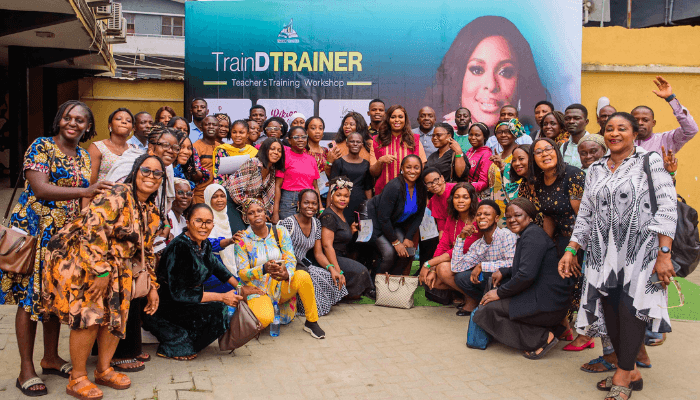In a thought-provoking statement that has stirred debate in education circles, Professor Onwudike-Jumbo has warned Nigerian teachers that artificial intelligence (AI) will inevitably replace those who refuse to embrace it.
Speaking at an education forum in Abuja, the professor made it clear: AI is no longer a futuristic concept—it is here, and it is changing the way learning happens. Those unwilling or unprepared to integrate digital tools into their teaching risk becoming irrelevant.
“We cannot keep teaching the way we taught twenty years ago while the world is moving forward,” Onwudike-Jumbo said. “If you do not learn to work with AI, AI will work without you.”
Table of Contents

AI: From Threat to Teaching Companion
For many educators, AI still feels like a threat—an unstoppable force ready to replace human teachers. But Onwudike-Jumbo argued that this perception is wrong. In reality, AI can reduce teachers’ workloads, speed up lesson preparation, assist with grading, and offer personalised learning for students.
Instead of spending hours marking scripts, teachers could use AI-powered tools to automate routine tasks and dedicate more time to engaging with students on a personal level—mentoring, inspiring, and nurturing them in ways technology cannot.
Government Push for AI Literacy Among Teachers
The Nigerian government has already recognised the need to prepare its educators for the AI era. Early in 2025, the Federal Government launched a nationwide programme to train 6,000 secondary school teachers in AI tools and techniques. The initiative, backed by the Federal Ministry of Education, aims to ensure that teachers are not just consumers of technology but active creators and innovators.
In Abuja, the FCT Education Board and the Universal Basic Education Board (UBEB) have also begun training school managers and teachers to use AI platforms like ChatGPT and Canva for lesson planning, curriculum design, and interactive teaching.
Education analysts agree that while these training programmes are a step forward, they need to be scaled up nationwide. Without widespread AI literacy, there is a risk that Nigerian students will be left behind in the global knowledge economy.

Barriers on the Road to Adoption
Despite the enthusiasm, challenges remain. Many schools—especially in rural areas—struggle with poor internet access, inconsistent electricity supply, and a lack of funding for digital tools.
There are also ethical concerns. AI tools can be misused for plagiarism, exam malpractice, or biased grading if not monitored properly. Data privacy is another worry, as most AI platforms require internet access and store user data on remote servers.
Without clear policies and strong regulatory frameworks, the benefits of AI could be overshadowed by its risks.
AI Cannot Replace the Human Touch
While AI can process information faster than any human, experts maintain that qualities like empathy, intuition, and social-emotional guidance remain beyond the reach of machines. Teachers are more than just knowledge transmitters—they are role models, counsellors, and community anchors.
A chatbot may be able to generate a perfect lesson plan, but it cannot comfort a child who has lost a parent, mediate a conflict between classmates, or inspire a struggling student to keep going.
Onwudike-Jumbo stressed that AI should be seen as a companion rather than a competitor in education. “The teacher’s humanity is irreplaceable,” he said. “But the teacher’s methods must evolve.”
A Call to Action for Nigerian Educators
The professor’s message is as much a warning as it is an invitation. The education sector is at a crossroads: adapt to AI or be overtaken by it. This adaptation requires mindset changes, institutional support, and a willingness to learn.
Already, other nations are integrating AI into classrooms—not as a novelty, but as an essential part of teaching. If Nigeria fails to keep up, the country risks widening its education gap in a world where digital literacy is as important as reading and writing.

Conclusion
Onwudike-Jumbo’s statement may sound harsh, but its truth is undeniable. AI won’t spare teachers who refuse to embrace it—not because AI is out to destroy jobs, but because the world is moving on.
Teachers who adapt will find themselves empowered, more efficient, and better able to prepare their students for the challenges ahead. Those who don’t may discover, too late, that the classroom has moved on without them.
Join Our Social Media Channels:
WhatsApp: NaijaEyes
Facebook: NaijaEyes
Twitter: NaijaEyes
Instagram: NaijaEyes
TikTok: NaijaEyes
READ THE LATEST EDUCATION NEWS






































